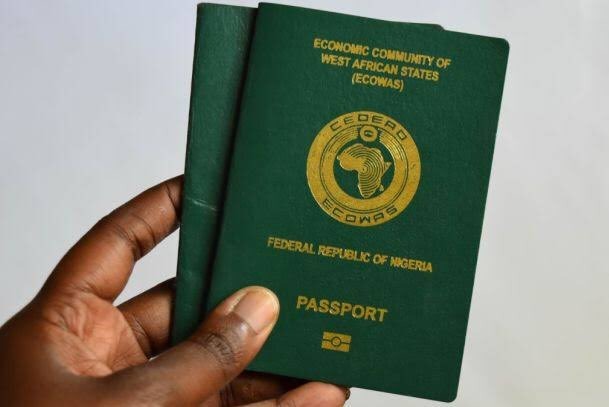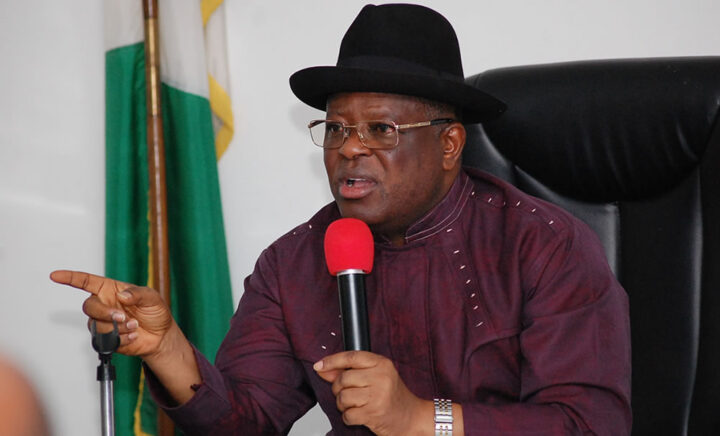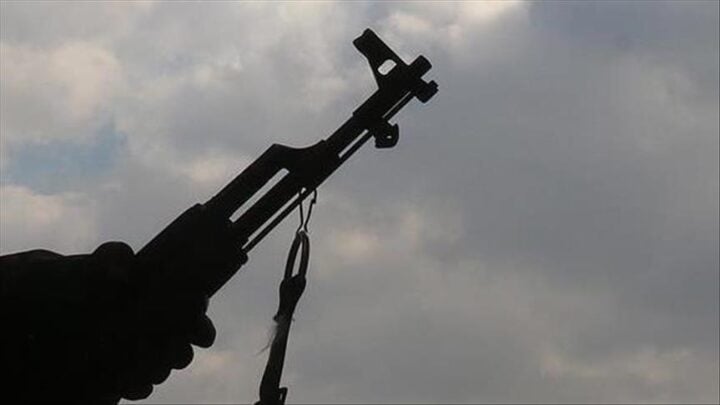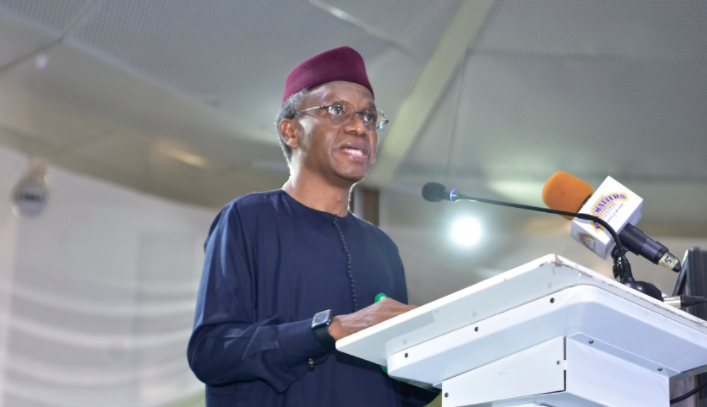When the Nigeria Immigration Service (NIS) said it was suspending fresh passport applications in order to clear the backlog, the first question that jumped at me was: what is so difficult about this thing? Nigerians, home and abroad, have been going through hell to secure a document that should be steadily available. Maybe I have not read wide enough, but I have not heard of any country in the world where there is passport booklet scarcity. I would think some things are so simple that we shouldn’t have to toil day and night for them. Why must everything in Nigeria have K-leg? Things are so complicated in this country that if you drink ordinary water, you would need toothpick.
The immediate cause of the scarcity, as I learnt, was the shortage of forex to print the booklets. Although NIS issues the passports, the production is handled by Iris Smart Technologies Limited (ISTL), a Nigerian company. Under the contractor-financed arrangement, Iris spends its own funds on the systems architecture and booklet production; NIS fixes the cost of acquiring the passports; applicants pay to the accounts of the Federal Government of Nigeria; and Iris gets paid for its services thereafter. According to National Bureau of Statistics (NBS) and NIS annual reports, Nigeria has so far earned $280 million and N120 billion from this contract — without putting in one kobo.
In December, the CBN, citing the dicey forex situation in the country, said it would not be able to issue certain letters of credit for some time and asked importers to explore the I&E window. While the CBN rate then was N380/$, I&E was hovering around N455. Also, the gap between demand and supply was such that if you wanted $1 million through I&E, you might not get more than $250,000. With the CBN not treating passport production as priority, Iris, I understand, went to the I&E window and, after two months, got only 25 percent of what it applied for. By the time the company went to the open market to buy at N490, applications had started piling up globally. A serious crisis ensued.
I am actually trying to be nice. Mr Mohammed Babandede, the comptroller general of NIS, pointedly accused the CBN of “a deliberate effort to block ISTL from accessing foreign exchange for the importation of booklets”. But why? My guess would be that since the Nigerian Security Printing and Minting (NSPM) Plc, also called The Mint, is a subsidiary of the CBN, maybe there is a kind of cold war going on. I can’t be too sure about that. The Mint was established by the Nigerian government in 1963 to print security documents; logically, passport booklets should be part of its portfolio. So, why can’t it handle the printing of the booklets? That, of course, is another story altogether.
Advertisement
On July 11, 2019, Mr Femi Adesina, presidential spokesman, announced that the federal government had cancelled “all e-passport printing contracts abroad”. Of course, that came across as suspicious because the government did not have any e-passport printing contracts abroad. The contract was with Iris, a wholly Nigerian company. Adesina also announced printing the booklets would become the sole responsibility of The Mint. Publicly, the argument was that the new arrangement would “conserve forex” and safeguard “national security”. Privately, as I later got to know, the plan was to get The Mint to partner with a newly formed private company for the production of the booklets.
The irony? The booklets would still be printed abroad. Names of top government officials and politicians were mentioned as the brains behind the new company that would go into partnership with The Mint. Whereas The Mint has been claiming it can print heaven and earth, it obviously does not have the capacity to print the booklets or mint the naira as widely advertised. It can only “finish”, to use the printing terminology for the final stages of production. Till today, NSPM outsources the production of the Nigerian visa vignette to a German company. The materials for the printing of the naira are still heavily imported, with The Mint only putting finishing touches.
NSPM, I understand, had the opportunity to make a case for itself: it was mandated to print the first set of e-passports when the project was launched in 2003. It fumbled spectacularly. The booklets it produced did not meet international standards. Not a surprise, though: is it not a government company? With the poor outcome, the federal government decided to conduct an open international bid in 2005. Three foreign companies participated, along with Iris and The Mint. But while Iris quoted N690.08 per booklet, The Mint put its bid price at N1,500. In the end, Iris’ bid was rated the best, financially and technically, among the five competing companies. Iris got the job.
Advertisement
The Mint, by the way, used to “print” the machine-readable passport (MRP) booklets before the e-passport project started 18 years ago. It outsourced the production to at least three foreign companies. You can guess that, as with most things handled by government agencies, there were serious problems with passport administration. There was double numbering of booklets. The covers came in different shades of colour as if it was not the same country. With no central database, inventory was uncontrollable. I travelled a lot on the MRP then and it was not funny as Nigerians were always subjected to extra checks at border controls because of the passport “diversity”.
Printing locally would “conserve” forex, according to government. But that is not true. I’ve been in the printing business for decades and my lamentation has always been why we import all the consumables: ink, plates, paper, etc. We import even the lowest grade of paper — the newsprint. To print passport booklets locally, we will still import the components such as chips, polycarbonate and covers from the Netherlands, US, Germany and Saudi Arabia. The Mint spends millions of dollars importing prepared security papers for the printing of the naira. In sum, no matter who produces the passport booklets, or where they are produced, forex will be involved. That is the fact.
An issue that has also been raised is “national security”. It is argued that printing the booklets in Malaysia, as we currently do, can lead to data breach. While I support local production to drive the development of core competence and skill sets, I think we should stop lying to Nigerians. Printing a booklet abroad is just like buying a safe or combination lock from Alaba market: you pick the security code yourself. NIS, not the printer, codes the passport booklets. The UK recently awarded the production of the British passport to Gemalto, a Franco-German company — not its own Royal Mint or De La Rue, the foremost British security printing company. There was no talk of national security.
In all, passport is now about technology, not paper and ink. Cost of printing is probably just 10 percent of the entire outlay. The key security is in the chips, not where the passports are manufactured. In the olden days, before technological sophistication, the booklet was all ink and paper. Today, governments encode the passports after they have been produced in order to determine access, protect usage and grant authorisation. The shift from security printing to technology means most countries now engage private tech companies, instead of the national security printers, to handle the e-passport. If UK can print in Germany despite Brexit, it says much.
Advertisement
My final words: instead of playing politics in order to cancel a legitimate contract and surreptitiously give it to another company under the pretext of “conserving forex” and “protecting national security”, our policy makers should focus their energies on achieving greater efficiency. How can we improve the capacity of The Mint? How can we make the current booklet production arrangement work better and stop embarrassing ourselves over a document that should be readily available? How can we stop subjecting Nigerians, home and abroad, to stress, frustration and anxiety all the time over acquiring the passport? We deserve to enjoy at least one good service from government.
3 comments








Everything is a case in Nigeria , just imagine common passport, Nigerian leaders why is it that you guys likes seeing Nigerians suffering every time.
Congratulations on a well researched article. It is not 100% accurate though but very well presented.
Excellent writeup